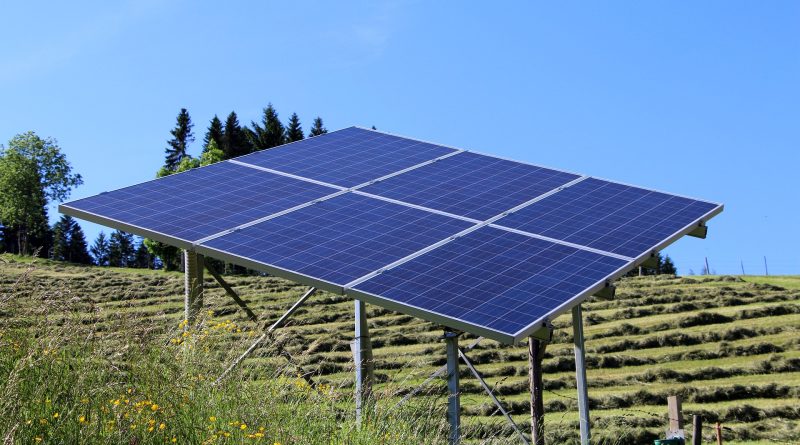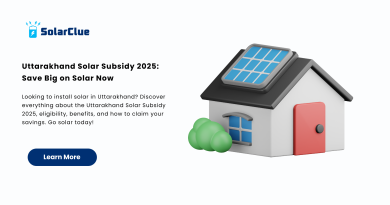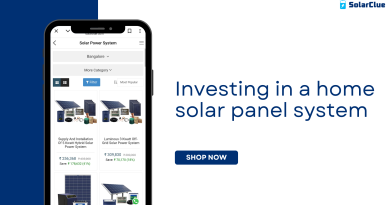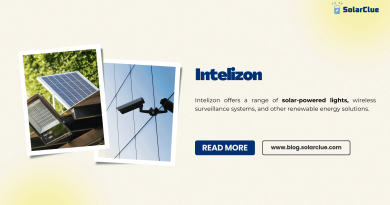Can we use solar panels without a battery?
Solar panels have become an increasingly popular option for harnessing renewable energy. With the continuous advancements in solar panel technology, more and more people are considering installing them in their homes or businesses. However, one question that often arises is whether it is possible to use solar panels without a battery. In this blog, we will explore this question and shed light on the advantages and disadvantages of using solar panels without a battery.
Table of Contents
Understanding Solar Panels
Before delving into the question at hand, it is crucial to have a basic understanding of how solar panels work. Solar panels are made up of photovoltaic (PV) cells, which convert sunlight into electricity. When sunlight hits the PV cells, it excites the electrons, generating a direct current (DC) flow. This DC electricity is then converted into alternating current (AC) through an inverter, making it suitable for use in our homes and businesses.
Using Solar Panels with a Battery
Traditionally, solar panel systems have been designed to work in conjunction with a battery. The battery acts as an energy storage option, allowing excess electricity generated during the day to be stored for use when the sun is not shining, such as at night or during cloudy days. This battery storage system provides a reliable and consistent power supply, even when solar generation is limited.
Using a battery with solar panels offers several advantages. It allows for energy independence, as users can have a constant power supply even during power outages. It also enables optimizing the use of solar-generated electricity, ensuring that any excess power is not wasted but is stored for later use. Additionally, solar panel systems with batteries can provide a backup power supply, reducing reliance on the main electrical grid.
The Option of Going Batteryless
Now, let’s address the question of whether it is possible to use solar panels without a battery. The answer is yes, it is possible to go batteryless and connect solar panels directly to the electrical grid. This setup, known as a grid-tied or grid-connected solar system, allows the excess electricity generated by the solar panels to be fed back into the grid.
One of the primary reasons for choosing a batteryless system is cost. Batteries can significantly increase the overall cost of installing solar panels. By eliminating the need for batteries, the initial investment required to set up a solar system can be reduced. This makes solar panel installations more accessible and affordable for many individuals and businesses.
Another advantage of a batteryless system is simplicity. Without the need for batteries, the maintenance and upkeep of your solar panel system become less complicated. Batteries typically require regular monitoring, maintenance, and eventual replacement. By eliminating batteries, you can have a more streamlined and hassle-free solar panel setup.
Advantages and Disadvantages of Going Batteryless
While there are benefits to choosing a batteryless solar setup, it is important to consider the disadvantages as well.
One disadvantage of not having a battery is the lack of energy independence. Without a battery, the solar panel system is entirely dependent on the electrical grid. If there is a power outage or grid failure, the system will shut down, and you will not have access to electricity. This reliance on the grid can be a significant drawback for those seeking a consistent power supply, especially in areas prone to outages or in remote locations.
Additionally, a batteryless system does not provide backup power. During times of low solar generation, such as at night or during extended cloudy periods, the system will not be able to provide electricity. This limitation can be problematic for those who rely heavily on solar power or are in areas with inconsistent weather patterns.
Conclusion
In conclusion, it is possible to use solar panels without a battery by connecting them directly to the electrical grid. Going batteryless offers financial savings and simplifies the maintenance of the solar panel system. However, there are trade-offs to consider, such as the lack of energy independence and backup power. Ultimately, the decision to use solar panels with or without a battery depends on individual needs, budget, and location. A thorough evaluation of these factors can help determine the most suitable choice for harnessing solar energy efficiently and effectively.
Embrace battery-free solar power! Explore the possibilities with SolarClue®. Optimize your solar panels for continuous, green energy.
Frequently Asked Questions
Yes, solar panels can directly supply power, but usage is limited to when the sun is shining.
Solar panels cannot generate power at night, so alternative power sources are needed during nighttime hours.
While possible, without a battery, the system won’t store energy for use during extended power outages.
Yes, it simplifies the system, reducing upfront costs and maintenance associated with battery storage.
Reliability is tied to sunlight availability; without a battery, solar power is only available during daylight hours.
It’s possible, but a mechanism is needed to match solar power availability with real-time energy demand.
Energy generation is reduced on cloudy days, and without a battery, available power is limited.
The primary limitation is the lack of power availability during periods without sunlight, such as at night.
Yes, it’s possible to integrate a battery into an existing system, but it may require system modifications.
Focus on maximizing energy usage during daylight hours and consider smart energy management solutions for efficient utilization.




